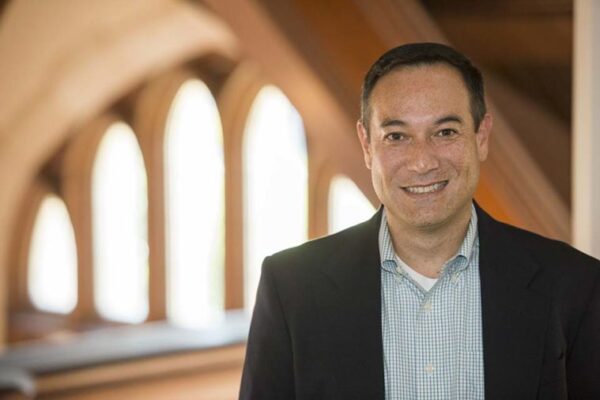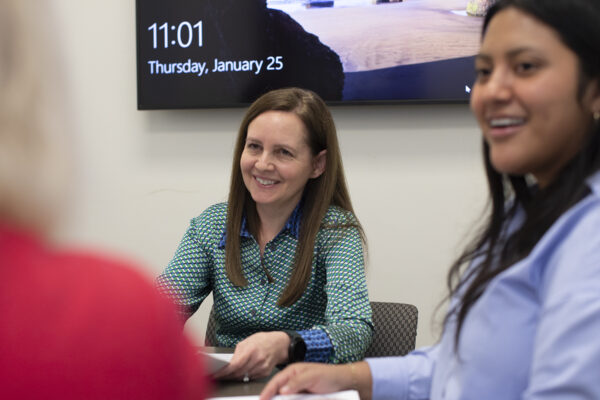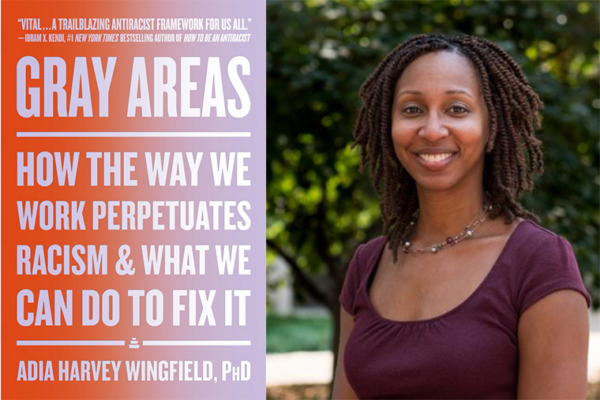Partisanship, anger and division seem to be at all-time highs in America. Even listening to different perspectives can sometimes feel out of the question. In this climate, is it possible to disagree productively and respectfully without compromising our convictions?
John Inazu, the Sally D. Danforth Distinguished Professor of Law & Religion at Washington University in St. Louis, thinks it is. Inazu’s forthcoming book, “Learning to Disagree: The Surprising Path to Navigating Differences with Empathy and Respect,” shows how to foster connection with those who hold viewpoints not in line with your own. Zondervan Publishing will release the book April 2.

It feels like division and disagreement are more rampant now than ever before. Is that true, historically?
“We have always had deep and polarizing divisions. After all, we fought a civil war, faced massive labor unrest, and have struggled mightily to recognize the civil rights of all people across race, gender, religion and sexuality. Nor have our politicians and election cycles ever been all that kind — take a look at the scorched earth vitriol that defined the election of 1800, for starters.
“At the same time, many Americans today experience less patience, empathy and understanding in their ordinary political and civic engagement. We have fewer coalitions across political lines at all levels of government. We no longer listen to news without either mistaking it for a pep rally or questioning its very integrity. We have less trust in expertise and institutions.
“We can recognize that our current politics has overcome many past hurdles — that we now rightly include many more voices in our democracy — and still observe that all is not well.”
Why is it important to leave our silos and engage with people who might not share our views?
“First of all, if we only spend time with people who think like us, we’re not really participating in our society. We’re building echo chambers and cultivating self-interest rather than attending to the hopes and dreams of the people around us.
“Engaging with people who think differently also lets us understand the world better and gain clarity about our own views. Most of us want to act well in the world — we want to do the right thing and be known as kind people. You can’t get there unless you take the time to figure out how other people think. And the better you understand their arguments, the better you’ll be able to engage with them and work to persuade them of yours.”

How can we all approach what is going to be a very contentious presidential election?
“We should have modest goals. For example, it’s very unlikely you’re going to change someone’s vote in the next few months. And even if you did, that one success story certainly isn’t going to sway a presidential election. The national politics for most of the voting public seems pretty baked in at this point. That doesn’t tell us what the outcome will be, but it is a caution about burning too much relational capital on trying to change someone’s vote. Instead, we should invest in building relational trust with the people around us, even the people with whom we disagree politically.
“Regardless of who wins in November, we will almost certainly have a contested election, a weak president-elect, rampant spread of disinformation on social media and all-time lows in trust of journalists and subject-matter experts. That’s not a recipe for peace and tranquility. While that doesn’t mean democracy is coming to an end, we will all have to do our part to restore trust in one another and in the institutions on which we depend. We need to be thinking in terms of generations, not just election cycles.”
Is it possible to live joyfully in our divided society?
“Yes. Take politics less seriously. Don’t be unserious about it, but don’t let it consume your life and your identity. And a related point: Take yourself less seriously. The future of the world doesn’t depend on you or me. And it certainly doesn’t depend on our sound bites and tweets. Instead of performing on social media, do the hard work of finding common ground, building institutions and serving your neighbors. And don’t forget to do ordinary things, too. Read a book, go on a walk, visit a friend. Our divided society is not going away, but we have the privilege of living in relative peace compared to other parts of the world and other times in history. Most people don’t get to follow up a street protest with a Starbucks latte and a few hours of Netflix. Stay engaged and active in politics, but don’t take for granted the good things around you.”


